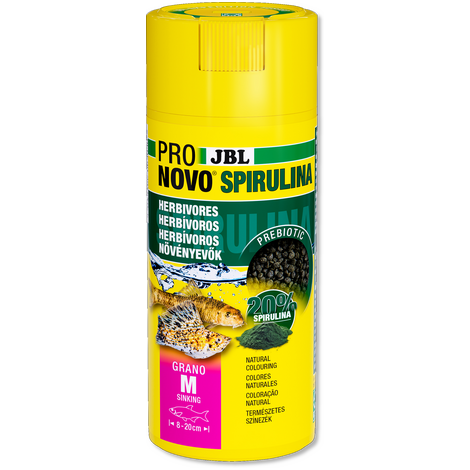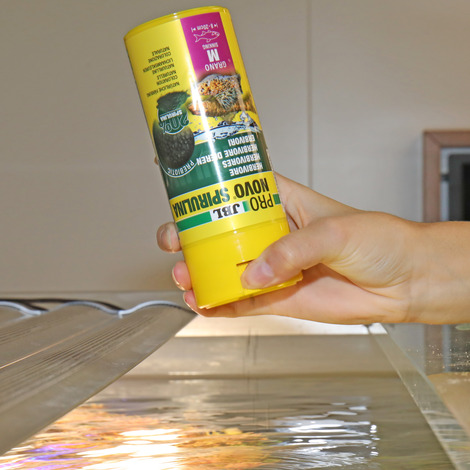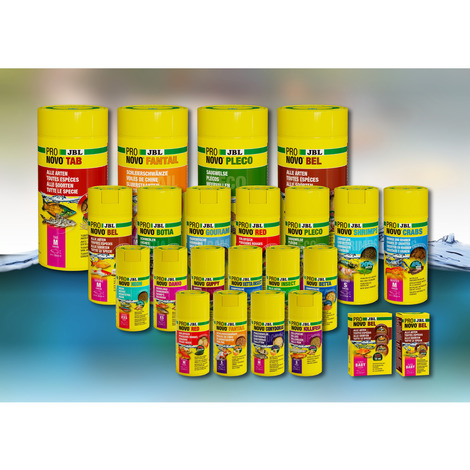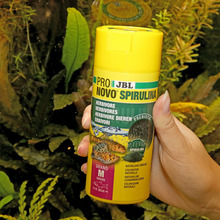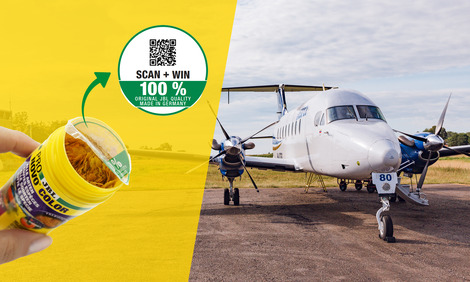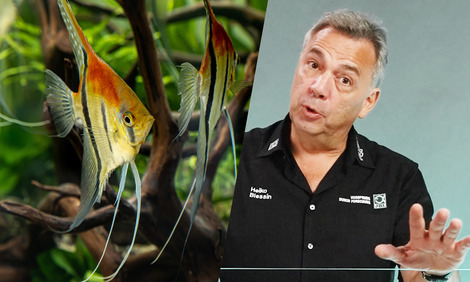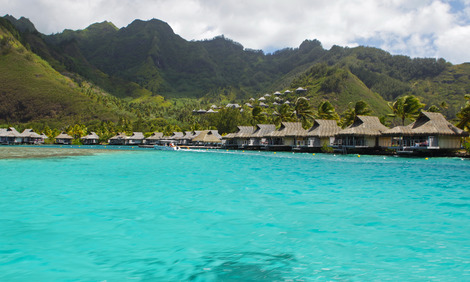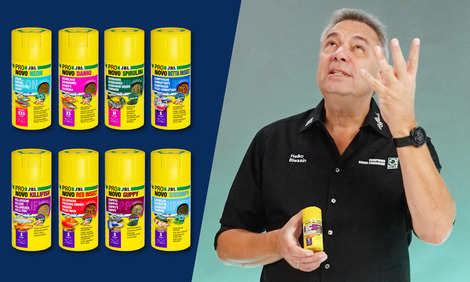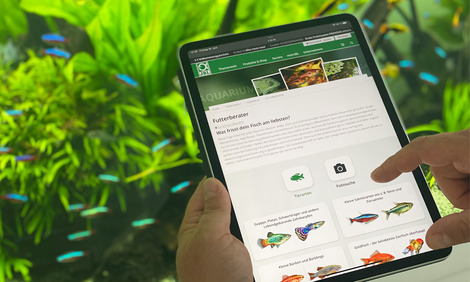Spirulina are blue-green algae, of which some species, such as the S. platensis processed here, have ideal protein contents for feeding ornamental fish. By the way, the spirulina content of 20 % in JBL PRONOVO SPIRULINA food is perfect - more would not be healthy for the fish! The natural astaxanthin (a carotene) in the algae causes the beautiful colouring of the fish. This is another reason why spirulina algae are very popular for feeding ornamental fish.
Probiotic or prebiotic - which is better?
Probiotic foods, such as some types of yoghurt, contain live bacterial cultures to promote health, but only when consumed in large quantities. Such foods, including probiotic fish food, can easily spoil and then have the opposite effect. The positive effect on health is, by the way, quite controversial.
Prebiotics are "substrates that are selectively used by host microorganisms and confer health benefits." Scientists are agreed on this that they promote digestion and thus health.
In the case of our fish, there is another essential aspect: with better digestion, less is excreted and the water is thus less polluted, causing fewer algae problems and keeping the water cleaner.
Flakes or granulate?
To be honest, it’s absolutely a matter of opinion! There are only a few arguments for or against the type of food. If you use an automatic feeder like the JBL AutoFood, you MUST choose granulated food, as almost all automatic feeders are only suitable for granulates. If you’re planning to use an automatic feeder for your next holiday, get your fish used to the granulated food from the automatic feeder IN GOOD TIME. Some fish actually find it a little difficult to switch from granulate to flake or vice versa. Imagine you have always eaten soft cornflakes and now you’re given wholemeal muesli for the first time.
JBL PRONOVO SPIRULINA GRANO M
Spirulina green food granulate in size M for all aquarium fish from 8-20 cm
- Sinking, prebiotic spirulina algae food granulate for herbivorous (plant/algae-eating) aquarium inhabitants such as livebearers & sucking loaches
- Natural raw ingredients without artificial additives for a natural diet and healthy aquarium fish. Tested on JBL research expeditions in the tropics
- Very high acceptance even with choosy fish species thanks to high-quality raw ingredients such as spirulina and shrimps
- Very high spirulina algae content of 20 % for healthy fish and optimal colour formation
- Package contents: original sealed, air- and light-tight, recyclable tin with click doser as feeding aid
